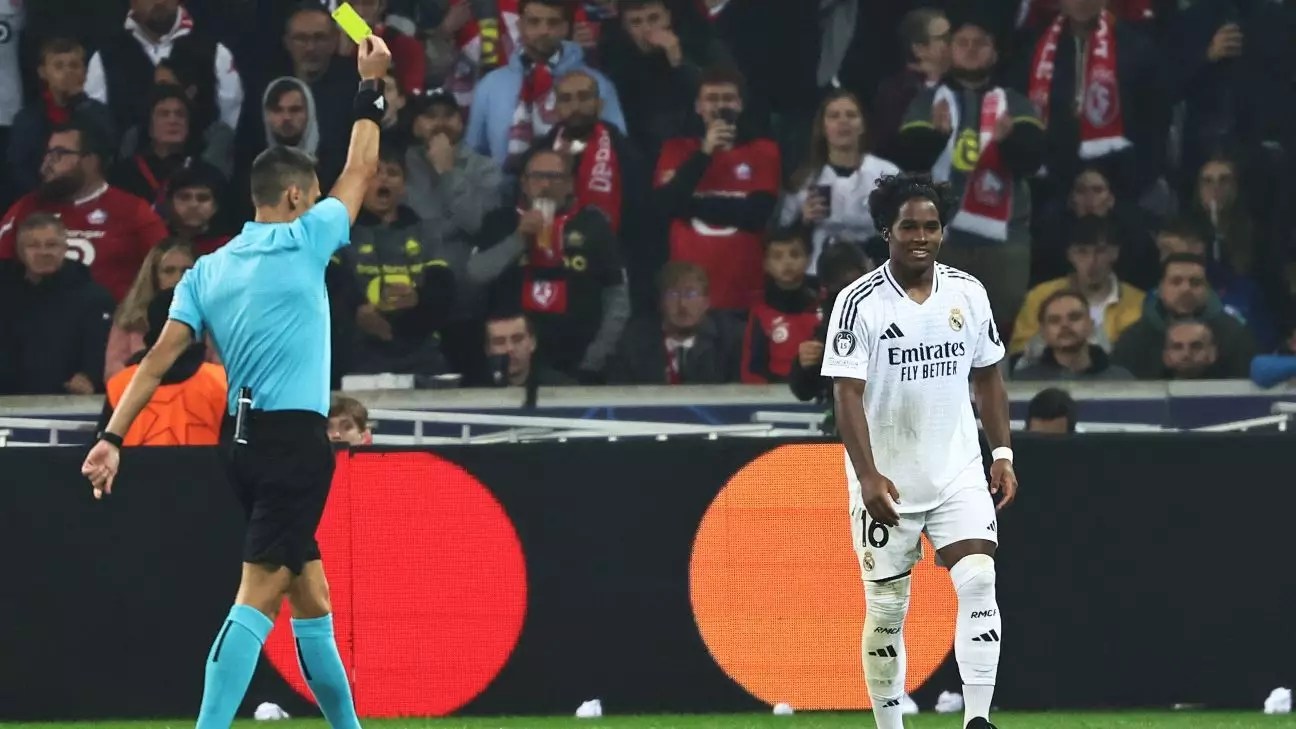Carlo Ancelotti faced a challenging moment with Real Madrid as they suffered a 1-0 defeat against Lille, marking the end of a remarkable 36-match unbeaten streak. Losses can punctuate a season dramatically, provoking questions about team dynamics, strategies, and the mental fortitude of players and coaching staff alike. Ancelotti seemed poised, however, seeing this defeat not as a pitfall but as an opportunity for growth. He emphasized the importance of responding effectively to adversity—a critical skill in the high-stakes world of competitive football.
In his reflections post-defeat, Ancelotti demonstrated a well-honed resilience to outside scrutiny. He acknowledged the necessity for improvement but firmly stated that the team is on the right path to success. The criticism faced by professional coaches can often veer into harsh territory, yet Ancelotti’s calm demeanor suggests he understands the cyclical nature of football. “I’m not worried at all,” he asserted, confidently maintaining that the primary objective lies in enhancing team performance. This mindset could be pivotal in fostering an environment where players are encouraged to learn from mistakes rather than dwell in disappointment.
The absence of Toni Kroos was a point of discussion after the Lille match, with some pundits questioning the team’s midfield capabilities. Ancelotti, however, dismissed notions of a void in the roster, citing an array of talented midfielders such as Luka Modric, Eduardo Camavinga, and Federico Valverde. These players are equipped with the technical skills necessary to maintain Madrid’s competitive edge. The real challenge lies not in replacement, but in unlocking the existing potential within the squad. Ancelotti’s call to elevate the intensity of play and expedite ball movement could unlock newfound efficiency in attack.
Attention naturally turned to Kylian Mbappé, the talismanic forward whose presence could significantly impact the team’s performance. Ancelotti confirmed that despite a minor thigh injury, Mbappé had resumed regular training. His decision to skip the French national team’s recent fixtures highlights a growing trend in football where player health is prioritized over immediate appearances. This approach vastly underlines Ancelotti’s long-term vision for the team: ensuring star players are fit for major competitions, rather than risking them in less critical games.
As Madrid prepares for a pivotal matchup against Villarreal, the landscape of LaLiga is notably competitive. Currently, Los Blancos find themselves in second place, trailing leaders Barcelona by three points. Ancelotti’s resolve to rectify previous missteps while capitalizing on the strengths of his squad is essential not only for immediate recovery but for sustaining momentum throughout the season. With a commitment to improvement and strategic adaptability, Real Madrid aims to reclaim their position at the pinnacle of Spanish football. Such resilience in the face of adversity is what often defines great clubs; it will be fascinating to see how Ancelotti’s philosophy plays out in the coming matches.


Leave a Reply